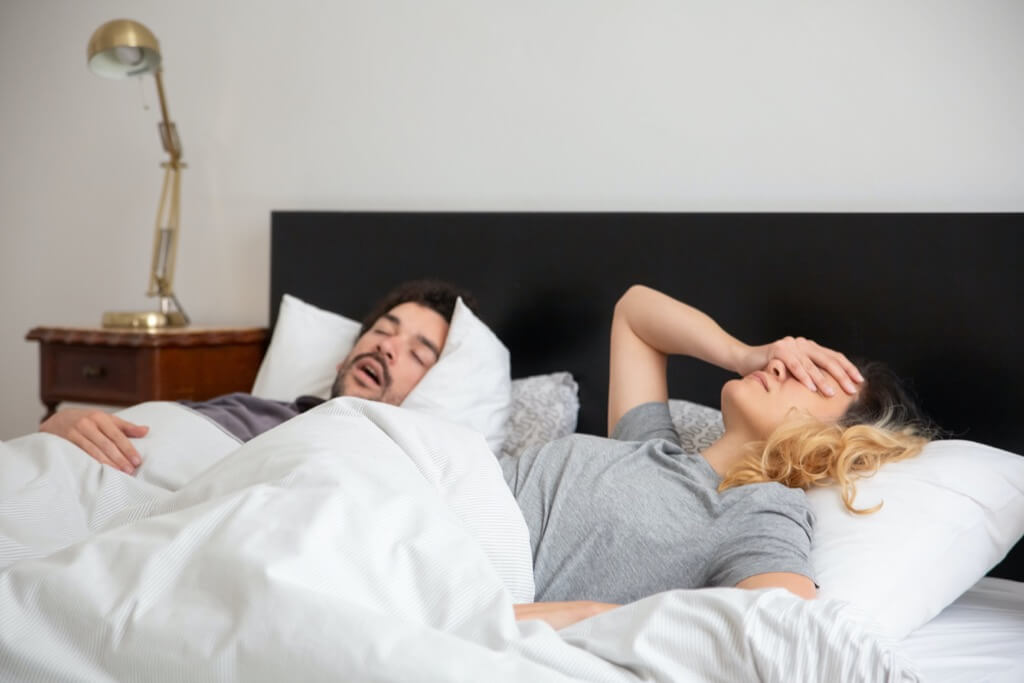When nestled in the embrace of sleep, the relaxation of the throat muscles can lead to a narrow airway, the stage where the symphony of snores begins. The soft tissues that can block the airway, like the soft palate or the base of the tongue, vibrate under the increased air pressure, leading to the familiar sound of snoring. The narrower the airway, the more pronounced this nocturnal melody becomes.
Several factors can amplify the chances of an individual serenading the night. Aging can lead to a decline in muscle tone, increasing the risk. Being overweight can add fatty tissues around the neck, causing a similar obstruction. The common cold, a penchant for smoking or drinking, and even the sleeping position, especially lying on the back, can make snoring more likely.
While the alarming myth that one can swallow their tongue during a seizure is unfounded, it’s worth noting that the tongue can contribute to the blockage of the airway during sleep. However, forcefully trying to prevent someone from “swallowing their tongue” during a seizure is a misguided action and could even cause harm.
Diving into the gender dynamics, research does indicate that men snore more than women. Approximately one-third of men and one-fifth of women are chronic snorers. One theory points to the structure of men’s throats. Men’s voice boxes are positioned lower, possibly leading to a partial blockage when their tongue slips backward during sleep. However, the real answer may lie in the pharyngeal mechanics. Men have larger pharynges than women. Moreover, their airways expand more when lying down, and as they age, their airways tend to collapse more than women’s. This structural difference plays a pivotal role in the higher prevalence of snoring among men.
A Deep Dive into Sleep Apnea
Sleep apnea, with snoring as a key symptom, is no small matter. Affecting around 18 million Americans, it involves instances where individuals momentarily stop breathing while asleep due to a complete airway obstruction. These short awakenings often go unnoticed by the sufferer. Aside from snoring, signs of sleep apnea include daytime fatigue, cognitive challenges, and mood swings. Left unchecked, it can escalate the risk of severe health issues such as heart disease and stroke.
Combatting the Midnight Concert
Addressing snoring hinges on its severity and cause. Adopting a healthier lifestyle, such as shedding extra pounds, ditching cigarettes, or moderating alcohol intake, can prove beneficial. For pronounced snoring, medical interventions like chinstraps, mouthpieces, or even surgery might be recommended. In cases of sleep apnea-induced snoring, a CPAP machine, which forces air into the throat, can be a game-changer.
For partners of prolific snorers, the nocturnal noises aren’t just a minor inconvenience. Insufficient sleep can lead to health repercussions, given that sleep allows the immune system to recharge and fend off ailments. As Dr. Ann Romaker of Saint Luke’s Health System’s Sleep Disorders Center insightfully shares, persistent snoring can not only disrupt sleep but also strain relationships, leading to heightened emotions such as irritation and sadness.
Helping Your Husband Curb His Snoring Habits
Understanding the Causes
Before diving into solutions, it’s essential to understand why your husband might be snoring. Factors range from the structural nuances of a man’s throat to lifestyle habits like smoking or alcohol consumption. Once you pinpoint the probable causes, addressing the snoring becomes more straightforward.
Promote a Healthier Lifestyle
Encourage your husband to adopt healthier habits. If he’s overweight, suggest incorporating regular exercise and a balanced diet into his daily routine. Shedding even a few pounds can make a significant difference in reducing snoring.
Change Sleeping Positions
If your husband frequently sleeps on his back, it can make snoring more pronounced. Gently nudge him to sleep on his side. You can invest in specially designed pillows or use a tennis ball sewn into the back of his pajama top to deter him from reverting to his back during sleep.
Clear Nasal Passages
Ensure that your husband’s nasal passages are clear before sleep, especially if he’s prone to allergies or nasal congestion. Using saline sprays, nasal dilators, or nasal strips can aid in opening up the airways.
Limit Alcohol and Sedatives
If your husband consumes alcohol or sedatives, especially before bedtime, it can relax the muscles of the throat more than usual, leading to snoring. Encourage him to limit or avoid these, particularly in the hours leading up to bedtime.
Stay Hydrated
Ask your husband to drink ample water throughout the day. Dehydration can make the secretions in the soft palate stickier, which can amplify snoring.
Consider Medical Interventions
If lifestyle adjustments don’t help, it might be time to seek medical advice. Consult a sleep specialist who can recommend treatments such as CPAP machines, chinstraps, or even surgery in severe cases.
FAQs: Addressing Common Queries
- Can specific foods trigger snoring? Yes, some foods can cause congestion or acid reflux, leading to snoring. It’s best to avoid large meals, dairy, or spicy foods before bedtime.
- Do over-the-counter snoring solutions work? Some OTC solutions can be effective, but it’s essential to consult with a healthcare professional to ensure they’re appropriate for your husband.
- How can I discuss the snoring issue without offending my husband? Approach the subject with empathy and understanding. Emphasize that it’s about his health and both of your well-being. Offer to support him through the process of finding a solution.




